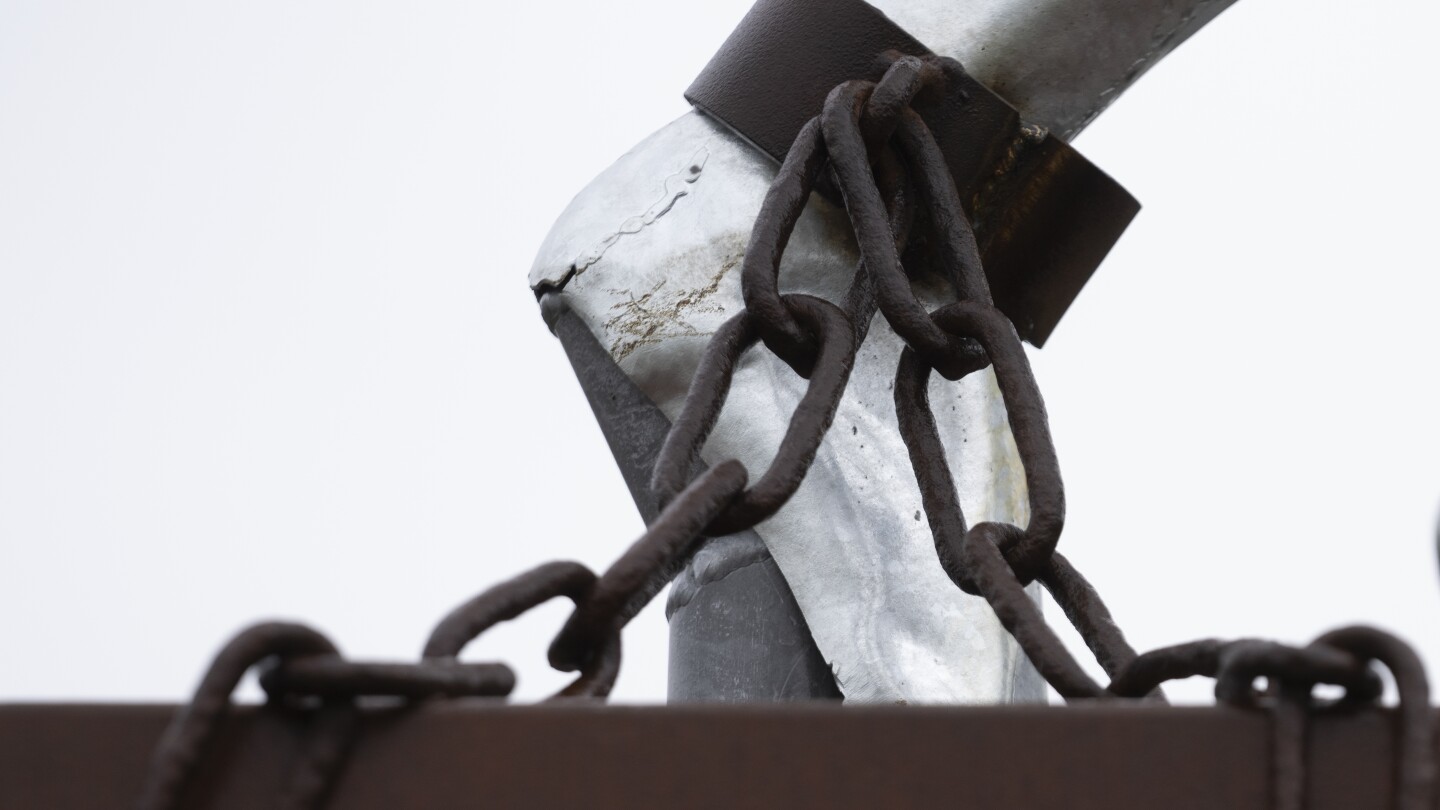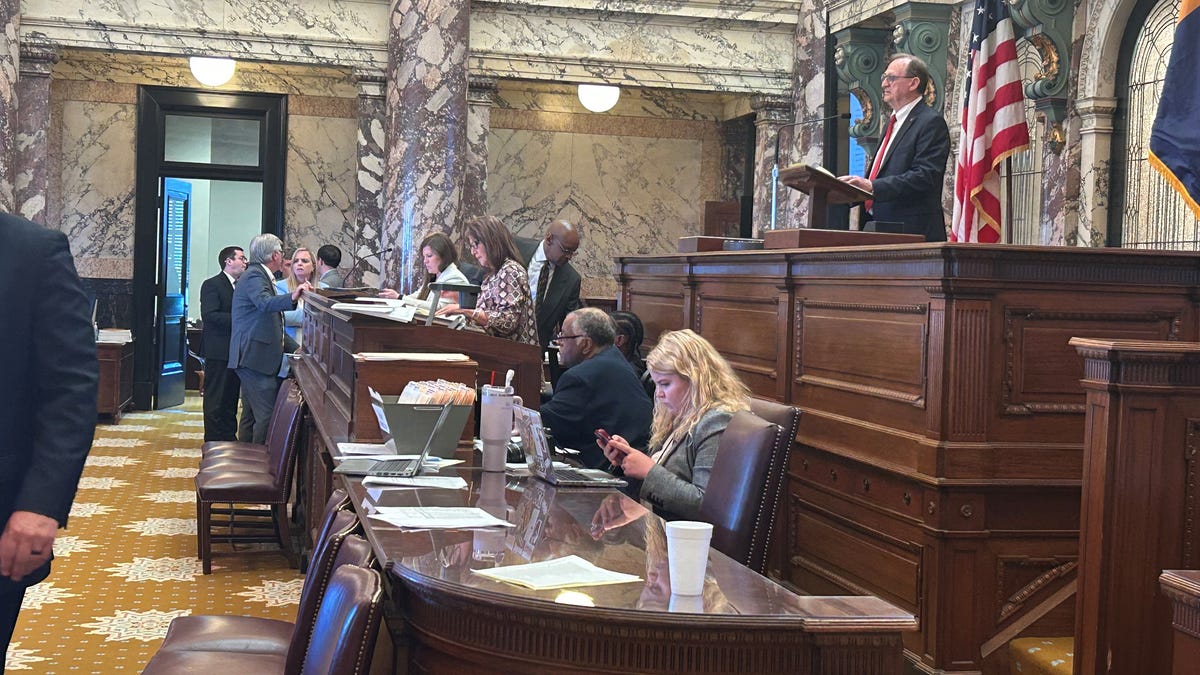World
The Dutch king could offer an apology in a speech on the anniversary of slavery’s abolition in 1863

AMSTERDAM (AP) — Dutch King Willem-Alexander will deliver a speech Saturday to commemorate the anniversary of the country abolishing slavery, amid speculation that he could offer an apology on behalf of the royal house.
The king’s speech follows Dutch Prime Minister Mark Rutte’s apology late last year for the country’s role in the slave trade and slavery. It is part of a wider reckoning with colonial histories in the West that have been spurred in recent years by the Black Lives Matter movement.
Slavery was abolished in Suriname and the Dutch colonies in the Caribbean on July 1, 1863, but most of the enslaved laborers were forced to continue working on plantations for a further 10 years. Saturday’s commemoration and speech mark the start of a year of events to mark the 150th anniversary of July 1, 1873.
The Dutch government says companies that produce machines that make advanced semiconductor processor chips will be required to have export licenses before they can sell them overseas starting in September.
The Dutch prime minister says that extraction from one of the world’s largest natural gas fields will end in October.
Research published last month showed that the king’s ancestors earned the modern-day equivalent of 545 million euros ($595 million) from slavery, including profits from shares that were effectively given to them as gifts.
When Rutte apologized in December for the Netherlands’ historic role in slavery and the slave trade — an apology that also included the royal house — he stopped short of offering compensation to descendants of enslaved people.
Instead, the government is establishing a 200 million-euro ($217 million) fund for initiatives that tackle the legacy of slavery in the Netherlands and its former colonies and to improve education about the issue.
That isn’t enough for some in the Netherlands. Two groups, Black Manifesto and The Black Archives, organized a protest march before the king’s speech Saturday under the banner “No healing without reparations.”
“The apology is an important historical step, but not enough. Descendants of enslaved people have the right to reparations,” march organizers said in a statement.
The Netherlands’ often brutal colonial history has come under renewed and critical scrutiny in the aftermath of the killing of George Floyd, a Black man, in the U.S. city of Minneapolis on May 25, 2020, and the Black Lives Matter movement.
A groundbreaking 2021 exhibition at the national museum of art and history took an unflinching look at slavery in Dutch colonies. In the same year, a report described the Dutch involvement in slavery as a crime against humanity and linked it to what the report described as ongoing institutional racism in the Netherlands.
The Dutch first became involved in the trans-Atlantic slave trade in the late 1500s and became a major trader in the mid-1600s. Eventually, the Dutch West India Company became the largest trans-Atlantic slave trader, according to Karwan Fatah-Black, an expert in Dutch colonial history and an assistant professor at Leiden University.
Authorities in the Netherlands aren’t alone in saying sorry for historic abuses.
In 2018, Denmark apologized to Ghana, which it colonized from the mid-17th century to the mid-19th century. King Philippe of Belgium has expressed “deepest regrets” for abuses in Congo. In 1992, Pope John Paul II apologized for the church’s role in slavery. Americans have had emotionally charged disputes over taking down statues of slaveholders in the South.
In April, King Charles III for the first time signaled support for research into the U.K. monarchy’s ties to slavery after a document showed an ancestor with shares in a slave-trading company, a Buckingham Palace spokesperson said.
Charles and his eldest son, Prince William, have expressed their sorrow over slavery, but haven’t acknowledged the crown’s connections to the trade.
During a ceremony that marked Barbados becoming a republic two years ago, Charles referred to “the darkest days of our past and the appalling atrocity of slavery, which forever stains our history.” English settlers used African slaves to turn the island into a wealthy sugar colony.
___
Mike Corder reported from Ede.

World
Ncuti Gatwa Bids Doctor Who Farewell as Finale Ends With a Most Surprising Twist — Grade It!

You will be redirected back to your article in seconds
ad
World
Floods kill at least 111 as northern Nigeria battles climate change, dry spells and heavy rainfall

Torrents of predawn rain unleashed flooding that killed at least 111 people in a market town where northern Nigerian farmers sell their wares to traders from the south, officials said Friday, predicting the death toll would grow.
The Nigerian Hydrological Services Agency did not immediately say how much rain fell after midnight Thursday in the town of Mokwa in the state of Niger, more than 180 miles west of Abuja, the capital of Africa’s most populous nation.
SOUTHEAST MET WITH DANGEROUS FLOODING WHILE NORTHEAST BRACES FOR SNOWSTORMS
Communities in northern Nigeria have been experiencing prolonged dry spells worsened by climate change and excessive rainfall that leads to severe flooding during the brief wet season.
In videos and photos on social media, floodwaters covered neighborhoods and homes were submerged, with their roofs barely visible above the brown-colored waters. Waist-deep in water, residents tried to salvage what they could, or rescue others.
A person looks on in his collapsed house following flooding that forced several thousands from their homes in Mokwa, Niger State, Nigeria, May 31, 2025. (Reuters/Stringer)
“We lost many lives, and the properties, our farm produce. Those that have their storage have lost it,” Kazeem Muhammed, a Mokwa resident, said.
Besides the 111 confirmed dead, “more bodies have just been brought and are yet to be counted,” Niger state emergency agency spokesman IIbrahim Audu Husseini told The Associated Press by telephone Friday afternoon.
Mokwa, nearly 380 kilometers (236 miles) west of Abuja, is a major meeting point where traders from the south buy beans, onions and other food from farmers in the north.
Mokwa community leader Aliki Musa told the AP the villagers are not used to such flooding. “The water is like spiritual water which used to come but it’s seasonal,” said Musa. “It can come now (and) it will reach another twenty years before coming again.”
The chairman of the Mokwa local government area, Jibril Muregi, told local news website Premium Times that construction of flood-control works was long overdue.
“This critical infrastructure is essential to mitigating future flood risks and protecting lives and property,” he said.
In September, torrential rains and a dam collapse in the northeastern city of Maiduguri caused severe flooding that left at least 30 people dead and displaced millions, worsening the humanitarian crisis caused by the Boko Haram insurgency.
World
Two killed in Russian attacks on Ukraine before possible talks in Turkiye

Russia has confirmed it will send a delegation to Istanbul, but Kyiv has not yet accepted the proposal.
Russian drone and missile attacks on Ukraine have killed at least two people, according to officials, as Ukraine ordered the evacuation of 11 more villages in its Sumy region bordering Russia.
Russian troops launched an estimated 109 drones and five missiles across Ukraine on Friday and overnight, the Ukrainian air force said on Saturday, adding that three of the missiles and 42 drones were destroyed and another 30 drones failed to reach their targets without causing damage.
The attacks came amid uncertainty over whether Kyiv will take part in a new round of peace talks early next week in Istanbul.
In the Russian attacks on Saturday, a child was killed in a strike on the front-line village of Dolynka in the Zaporizhia region, and another was injured, Zaporizhia’s Governor Ivan Fedorov said.
“One house was destroyed. The shockwave from the blast also damaged several other houses, cars, and outbuildings,” Fedorov wrote on Telegram.
A man was also killed by Russian shelling in Ukraine’s Kherson region, Governor Oleksandr Prokudin wrote on Telegram.
Moscow did not comment on either attack.
Meanwhile, authorities in Ukraine’s Sumy region said they were evacuating 11 villages within a roughly 30-kilometre (19-mile) range from the Russian border.
“The decision was made in view of the constant threat to civilian life as a result of shelling of border communities,” the regional administration said on social media.
Ukrainian President Volodymyr Zelenskyy has said some 50,000 Russian troops have amassed in the area with the intention of launching an offensive to carve out a buffer zone inside Ukrainian territory.
Ukraine’s top army chief, Oleksandr Syrskii, said on Saturday that Russian forces were focusing their main offensive efforts on Pokrovsk, Torets and Lyman in the Donetsk region, as well as the Sumy border area.
Syrskii added that Ukrainian forces are still holding territory in Russia’s Kursk region – a statement Moscow has repeatedly denied.
The evacuations and attacks came just two days before a possible meeting between Kyiv and Moscow in Istanbul, as Washington called on both countries to end the three-year war.
Russia has confirmed it will send a delegation, but Kyiv has not yet accepted the proposal, warning the talks would not yield results unless the Kremlin provided its peace terms in advance.
Zelenskyy said Saturday it was still not clear what Moscow was planning to achieve at the meeting and that so far, it did not “look very serious”.
-

 News1 week ago
News1 week agoRead the Full ‘Make America Healthy Again’ Report
-
Movie Reviews1 week ago
Movie Review: 'Pee-wee as Himself' unmasks Paul Reubens
-

 Technology1 week ago
Technology1 week agoNow you can watch the Internet Archive preserve documents in real time
-

 World1 week ago
World1 week agoNeo-Nazi cult leader extradited to US for plot to kill Jewish children
-

 Technology1 week ago
Technology1 week agoDiscord might use AI to help you catch up on conversations
-

 Movie Reviews1 week ago
Movie Reviews1 week agoMovie review: 'Dogma' re-release highlights thoughtful script – UPI.com
-

 Business1 week ago
Business1 week agoPlastic Spoons, Umbrellas, Violins: A Guide to What Americans Buy From China
-

 Science1 week ago
Science1 week agoTrump Has Cut Science Funding to Its Lowest Level in Decades



















